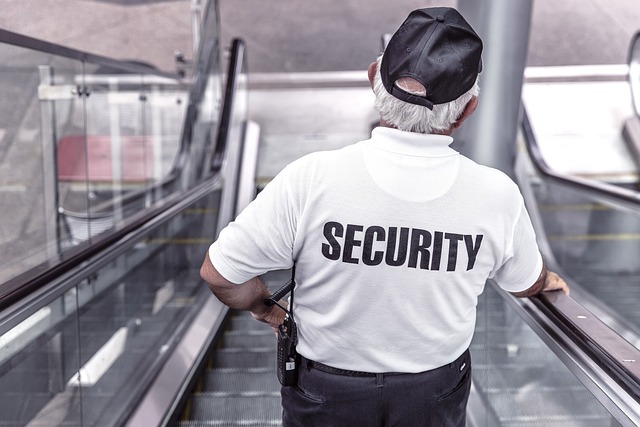If you’re considering a career that combines responsibility, vigilance, and the opportunity to protect others, becoming a licensed security guard could be your calling. From corporate offices to event venues and residential communities, security guards serve as the frontline of defense. Blackledge Security & Bondsman/BEA Training in Connecticut offers comprehensive programs to help you take that first step. But how do you actually become one? Let’s walk through the process, answer some commonly asked questions, and dive into why this profession might be more fulfilling than you think.
The First Step: Security Guard Training
Before you can wear the badge, you’ll need to complete a certified training program. These programs are designed to equip you with both the theoretical knowledge and practical skills needed to handle real-world scenarios. You’ll learn everything from conflict resolution and patrolling techniques to legal limitations and emergency response. One reputable training provider offers specialized security guard license training and “blue card” classes tailored to those looking to enter the industry with confidence and competence. Their program ensures you’re not only meeting state requirements but also becoming job-ready with hands-on guidance from experienced instructors.
Background Checks and Licensing Requirements
Once training is complete, the next major hurdle is passing a criminal background check. This is a standard requirement in most states, ensuring the safety and integrity of the profession. You’ll also need to submit fingerprint scans and complete your application with the appropriate licensing body. Some states may require a psychological evaluation or additional assessments depending on the type of security work you’ll be performing – armed or unarmed.
What’s the Difference Between Armed and Unarmed Guards?
While unarmed guards often work in retail, hospitality, and reception settings, armed guards typically work in higher-risk environments like banks or armored transport. Becoming an armed guard usually involves extra training, including firearms certification and periodic re-qualification. Fun fact: in some jurisdictions, armed guards receive more training hours than new police recruits!
How Long Does It Take?
The timeline to becoming a licensed guard varies. Most training programs can be completed in a few weeks, while the licensing process may take an additional month depending on your state’s processing times. Some guards find work quickly after training, especially if they attend a course with job placement assistance.
Do I Need Experience?
Not necessarily! Many people start this career without any prior experience in law enforcement or military service. However, having good communication skills, a clean record, and a strong work ethic will definitely help. Employers look for candidates who are dependable and observant, not just those with a tough demeanor.
How Much Can I Earn?
Security guard wages can vary widely. Entry-level positions might start around minimum wage, but armed guards, event security, or those working in corporate sectors often earn significantly more. Over time, you can move into supervisory roles or specialize in areas like surveillance or executive protection. Some guards also choose to become private investigators or transition into law enforcement.
An Unexpected But Relevant Connection: Injury and Worker’s Rights
While pursuing a career in security, it’s also essential to understand your rights as a worker – especially in a role where physical risk is a factor. If you’re ever injured on the job, you may need legal guidance to navigate the workers’ compensation process. One legal team known for helping injured security guards and other professionals offers trusted support to ensure you receive the benefits you’re entitled to – medical coverage, lost wages, job security during your recovery, and even disability claims assistance when necessary. They’ve represented countless individuals dealing with denied claims, delayed treatments, or unsafe working conditions, helping them stand up to insurance companies and employers alike. Whether it’s a slip-and-fall, assault, or strain injury from long hours on your feet, knowing where to turn for legal help is as crucial as your training in the field.
FAQs: What Aspiring Guards Always Ask
Q: Do I need to be a U.S. citizen?
Not always. Permanent residents can usually apply, but requirements vary by state.
Q: Can I work while my license is being processed?
Some states issue temporary permits that allow you to begin working under supervision.
Q: Are there age restrictions?
Yes. Most states require you to be at least 18 years old, or 21 for armed positions.
Q: Is the license valid in other states?
Generally, no. Licenses are state-specific, though some states have reciprocity agreements.
Becoming a licensed security guard isn’t just about standing watch, it’s about playing a vital role in public and private safety. With the right training, mindset, and awareness of your rights, it can be a steady and meaningful career path. From securing nightclubs to monitoring surveillance for high-profile clients, the range of opportunities continues to grow in this ever-evolving industry. Whether you’re in it for the long haul or using it as a stepping stone into law enforcement, the journey begins with a single, well-trained step.


Dewabetvn8 – Heard good things. Thinking of throwing a few bucks in and seeing how it goes. The graphics look pretty slick to be fair! Check it out for yourselves: dewabetvn8
7mcnmacao for the win! For real, solid info on Macau games. Keeps me in the know. Check it 7mcnmacao out!
Yo! casinonovibet is where it’s at. The casino games are popping and the signup bonus is actually decent. Give it a whirl! casinonovibet
**mitolyn official**
Mitolyn is a carefully developed, plant-based formula created to help support metabolic efficiency and encourage healthy, lasting weight management.